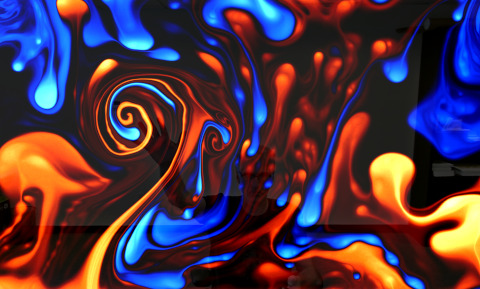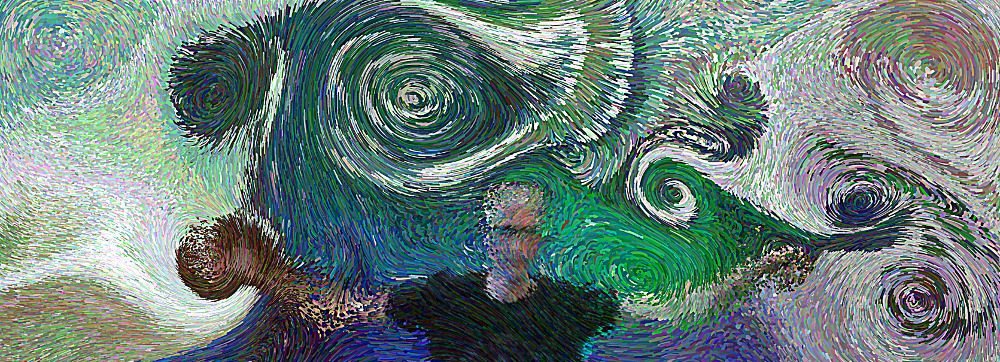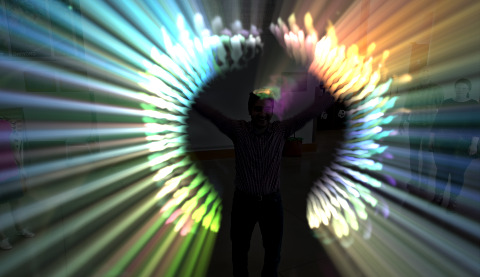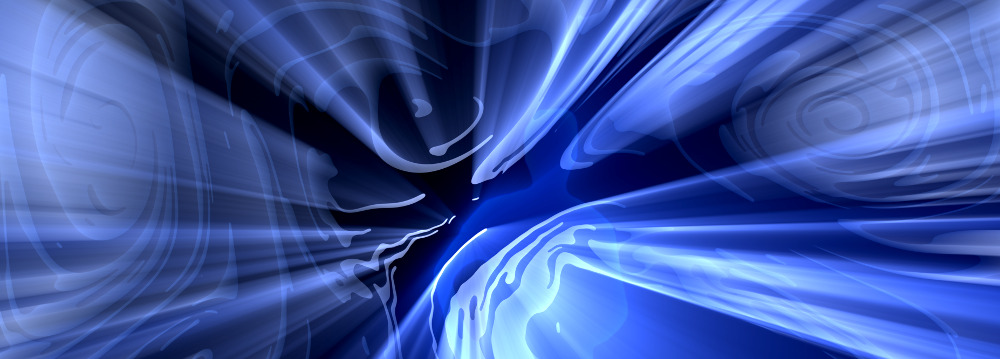Flow
Interactive visual effects by Karl Sims, 2018
This exhibit presents various fluid flow, particle systems, and
image processing simulations that react to visitors as they move in
front of a display. A video image of the participants is
augmented with special effects to give the impression that they are in
the same environment as the effects.
Flow is on display in the CSAIL lobby of the Frank Gehry-designed MIT Stata Center in Cambridge, Mass. and at the National Museum of Mathematics in NYC.
A Kinect depth sensor detects the shapes of people in front of the display, and allows them to manipulate the simulations with their gestures and motions. The exhibit cycles through 10 effect modes with different simulations and visual effects, each lasting about one minute. The cycle of effects varies from day to day, so your experience may differ depending on when you visit. Photos from a subset of these effects are shown here.
This Fluid Flow Tutorial provides some technical details on the real-time fluid simulations used for this exhibit.

In this effect, participants see a mirrored image of themselves augmented with virtual colored ink that squirts from their hands and other detected protrusions.






